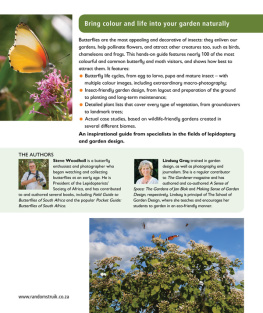First published in 1964
Reprinted in 2004 by Routledge
2 Park Square, Milton Park, Abingdon, Oxon, OX14 4RN
Transferred to Digital Printing 2009
Routledge is an imprint of the Taylor & Francis Group
1964 Robert F Gray and P H Gulliver
All rights reserved. No part of this book may be reprinted or reproduced or utilized in any form or by any electronic, mechanical, or other means, now known or hereafter invented, including photocopying and recording, or in any information storage or retrieval system, without permission in writing from the publishers.
The publishers have made every effort to contact authors/copyright holders of the works reprinted in Routledge Library Editions Anthropology and Ethnography. This has not been possible in every case, however, and we would welcome correspondence from those individuals/companies we have been unable to trace.
These reprints are taken from original copies of each book. In many cases the condition of these originals is not perfect. The publisher has gone to great lengths to ensure the quality of these reprints, but wishes to point out that certain characteristics of the original copies will, of necessity, be apparent in reprints thereof.
British Library Cataloguing in Publication Data
A CIP catalogue record for this book is available from the British Library
The Family Estate in Africa
ISBN 0-415-32556-0 (set)
ISBN 0-415-32985-X
Miniset: Africa
Series: Routledge Library Editions Anthropology and Ethnography
THE FAMILY
ESTATE
IN AFRICA
Studies in the Role of Property in
Family Structure and Lineage Continuity
Edited by
Robert F. Gray and P. H. Gulliver
LONDON
ROUTLEDGE & KEGAN PAUL
First published 1964 by Routledge and Kegan Paul Ltd Broadway House, 68-74 Carter Lane London, E.C.4
Printed in Great Britain by Cox and Wyman Ltd London, Fakenham and Reading
Robert F. Gray and P. H. Gulliver 1964
No part of this book may be reproduced in any form without permission from the publisher, except for the quotation of brief passages in criticism
CONTENTS
Robert F. Gray
E. V. Winans, Ph.D. (California)
Robert A. LeVine, Ph.D. (Harvard)
Igor Kopytoff, Ph.D. (Northwestern)
Alfred Harris, Ph.D. (Cantab) and Grace Harris Ph.D. (Cantab)
Eileen Jensen Krige, D.Litt. (Witwatersrand)
P. H. Gulliver, Ph.D. (London)
Robert F. Gray, Ph.D. (Chicago)
Robert F. Gray
T HE essays in this book deal with certain aspects of family life in seven societies of eastern and central Africa. In planning the symposium the writers came to an agreement to analyse and present their material from a viewpoint which would stress these two aspects of the family: (i) the attachment of the family to property and resources, and (2) the developmental aspect or the time dimension.
The study of these aspects is not new in anthropology, and we do not claim to be introducing original concepts or methods. On the contrary, we agreed to recognize as specific prototypes of our symposium two works previously published. The first is an analysis by P. H. Gulliver of two societies of East Africa, the Jie of Uganda and the Turkana of Kenya. The author traces in detail the social transactions concerning livestock, demonstrating clearly that domestic animals serve as foci of social rights and obligations, as indices of social relationships. This pioneer study provided us with a working hypothesis. These two societies are predominantly pastoral, the Turkana almost exclusively so, while the seven societies described in the present book are predominantly agricultural, though livestock are also quite important in some of them. The hypothesis is that in these societies other forms of property are foci of social rights and obligations just as livestock are for the Jie and Turkana. Our task, then, was to test this hypothesis and determine in each case the social role of different forms of property.
Gulliver in his book also analyses the process of family development, giving emphasis to the temporal aspect, which is our second special concern. He recognizes that social and














